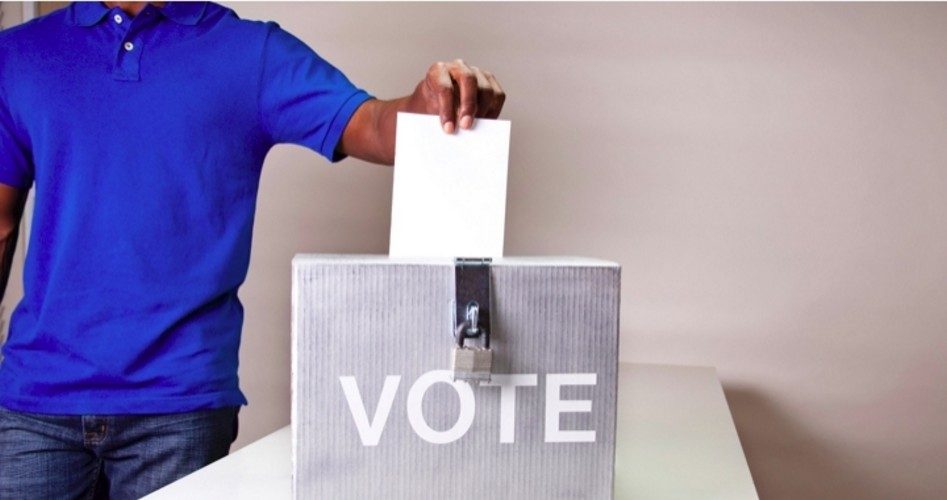
The shrinkage of support for the Democrat Party’s presumptive presidential candidate Joe Biden among young black and Hispanic likely voters in November’s election has caught the attention of Harry Enten of CNN.
Enten is one of the new breed of political journalists specializing in data-driven reporting and was one of the first people Nate Silver hired when he relaunched his FiveThirtyEight polling website under the auspices of ESPN in 2013. He not only writes for CNN but also produces The Forecast Fest, which focuses on the 2020 presidential election.
Noted Enten on Tuesday, “Trump continues to do something perhaps unexpectedly among Black voters: hold his own against Biden relative to many people’s expectations.”
Those expectations were that Biden would romp over Trump in the general election among black and brown voters, who would vote just the way they did in 2016 in favor of Clinton over Trump.
Enten has reviewed more than 1,000 live interviews in order, he says, to “assess Black voter sentiment in the presidential race … since the [George Floyd] protests began.” He found that President Trump is “picking up a lot of the vote that went to third-party candidates” in 2016. “Given the way margins of error work,” said Enten, “this … improvement for Trump from 2016 is statistically significant.”
That’s how a liberal data geek expresses concern over November’s outcome. Enten elaborated:
Biden has such a large lead overall that Trump’s small gain among Black voters doesn’t really matter in the grand scheme of the 2020 election. But if the race for president tightens, Trump’s small gain with Black voters could make a difference.
It could cost Biden 0.5 points nationally on the whole compared to where Clinton ended up. That may not seem like a lot, though it could make the difference in a close election.
The Washington Post published an analysis from the Democracy Fund + UCLA Nationscape project in May, which confirms what Enten is nervous about: While 91 percent of Black voters age 65 and older say they plan to vote for Biden, just 68 percent of Black voters between the ages of 18 and 29 said they’d support Biden in November. Not only is that more than a 20-point drop between those age groups, it’s a 17-point drop compared to Clinton, who drew 85 percent of young Black voters in 2016.
Further, that analysis revealed that 13 percent of Black voters ages 18 to 29 have already decided to vote for Trump.
Another study suggested the same thing, this time from the Institute of Politics at Harvard University. In its Spring 2020 Harvard Youth Poll, it learned that a group they call “Multicultural Moderates,” made up of Blacks and Hispanics who “strongly support school choice, free trade, cutting taxes to stimulate the economy and … believe that religious values should play a more significant role in government,” are increasingly supporting President Trump.
Although 51 percent of them still support Biden, an astonishing 36 percent of them support the president. By comparison, Trump won just 21 percent of all non-white voters in 2016, according to exit polls.
Alex Roarty, writing for McClatchy DC, which focuses on political news from the nation’s capital, also noted that “the overwhelming support [Democrats] traditionally count on from [Black and Hispanic voters] could be diminished in November, with potentially serious consequences in a tight election.”
And Guy Cecil, former political director for Hillary Clinton’s presidential bid in 2008 and who now chairs Priorities USA Action, the Democrat Party’s largest super-PAC, is getting nervous about Trump’s inroads among typical Democrat Party supporters. He told reporters back in February that his group was “closely monitoring” Trump’s support among younger African Americans, which at that time was in the low 20s, far above the usual six-to-eight percent that group gave to Republican candidates in past elections.
There are those who are persuaded that Trump will obliterate Biden come November, including that professor from Stony Brook University whose “primary model” is predicting a 91-percent chance that Trump will win the election. In a close race, especially in battleground states such as Michigan and Florida where Blacks and Hispanics make up a large portion of voters, large changes among those minorities could secure the election for Trump.
Image: fstop123/iStock/Getty Images Plus
An Ivy League graduate and former investment advisor, Bob is a regular contributor to The New American, writing primarily on economics and politics. He can be reached at [email protected].
Related articles:
GOP Pollster Claims Media Polls Are Deliberately Skewed Against Trump
Polls Give Biden the Edge. But This Model Predicts a Big Trump Win


